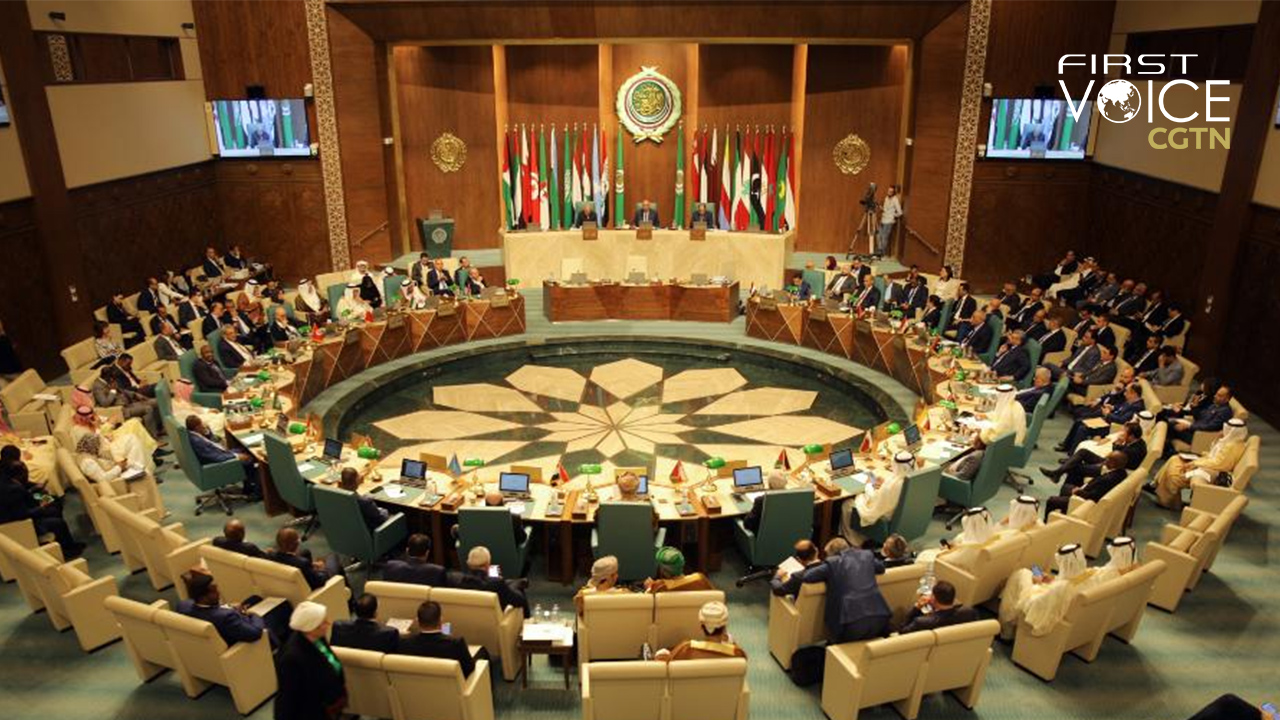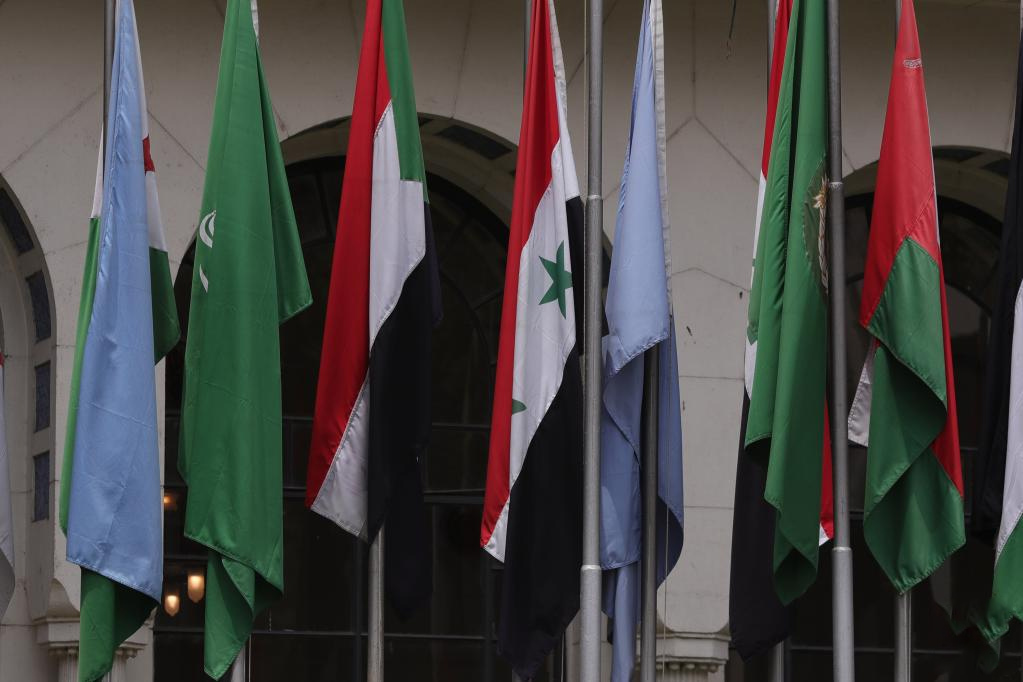
This photo taken on May 7, 2023 shows the scene of an Arab League extraordinary meeting held in Cairo, Egypt. /Xinhua
This photo taken on May 7, 2023 shows the scene of an Arab League extraordinary meeting held in Cairo, Egypt. /Xinhua
Editor's note: CGTN's First Voice provides instant commentary on breaking stories. The column clarifies emerging issues and better defines the news agenda, offering a Chinese perspective on the latest global events.
The Middle East, a region often associated with conflict and discord, is now on the cusp of a profound transformation towards peace and prosperity. As Türkiye and Syria inch towards normalizing ties, and Iran and Saudi Arabia take the first steps on the road to reconciliation, it's becoming evident that the region's battles are neither ingrained nor insurmountable. Left to their own devices, the people of this region naturally lean towards peace, a universal human longing.
The four-way meeting in Moscow between Türkiye, Russia, Iran, and Syria is a watershed moment. The Middle East is witnessing shifting geopolitical dynamics, with President Recep Tayyip Erdogan of Türkiye, a NATO member, softening his earlier hostile stance towards Syrian President Bashar al-Assad. Mediated by Russia and Iran, these talks carry the potential to not only forge peace between the two nations but also speed up the repatriation of nearly four million Syrian refugees in Türkiye.
On a parallel track, Saudi Arabia and Iran, two regional heavyweights with a history of strained relations, are moving toward reconciliation. Their pledge to reopen diplomatic missions, which Iran's Foreign Ministry announced on Monday as being in its final stage, symbolizes this thawing relationship. A landmark deal brokered by China has facilitated this rapprochement, indicating a broader warming of relations across the region, despite external opposition.
This atmosphere of fence-mending has set the stage for Syria's readmission into the Arab League on Sunday, ending a 12-year suspension and marking President Assad's comeback into the regional fold.
However, these peace initiatives have faced resistance. The United States, a long-time ally of Saudi Arabia, has voiced concern over these normalization efforts, referencing Assad's past brutalities and repeating a list of grievances. This highlights a key question: the role and impact of external forces in regional affairs.
Washington's resistance to the growing autonomy and independence in the Middle East is both clear and predictable. The harrowing stories that have emerged from Syria and the broader Middle East in recent years can be largely attributed to Washington's policy of playing one faction against another. From the U.S.'s viewpoint, the harsh realities endured by ordinary families – their struggle for survival and their desperate battle against hunger – are mere collateral damage, overshadowed by the broader geopolitical game of divide and conquer in an oil-rich region critical to the U.S. economy. Yet, as the shadow of Washington recedes, the dawn of peace seems to grow brighter and more expansive.

This photo taken on May 7, 2023 shows the national flag of Syria (4th L) at the headquarters of the Arab League in Cairo, Egypt. /Xinhua
This photo taken on May 7, 2023 shows the national flag of Syria (4th L) at the headquarters of the Arab League in Cairo, Egypt. /Xinhua
Similar lessons could be applied to the Ukraine conflict, where peace could also be achieved with outside peacemakers like China acting as moderators. However, for a solution to be reached, both sides must be willing to sit down for talks and reach a political solution that honors UN principles. Unfortunately, the U.S., seeking strategic advantage, is meddling from outside the region to keep the conflict alive, much to the detriment of the Ukrainian people.
The history of U.S. intervention serves as a stark reminder that external forces often exacerbate situations rather than resolve them. As the nations of the Middle East adopt a more autonomous approach to conflict resolution, it becomes imperative that they are allowed to steer their own course. The pursuit of strategic autonomy and regional peace has gained considerable momentum in recent years, particularly as the U.S. withdraws its presence from the region.
The rising tide of reconciliation in the Middle East serves as a powerful testament to the fact that even the most protracted conflicts can be resolved. It offers a beacon of hope for peace and stability in a region historically plagued by turmoil. However, for this promising trend to mature into lasting peace, it is crucial that the nations involved are granted the autonomy to chart their own path, free from undue external intervention.
(If you want to contribute and have specific expertise, please contact us at opinions@cgtn.com. Follow @thouse_opinions on Twitter to discover the latest commentaries in the CGTN Opinion Section.)